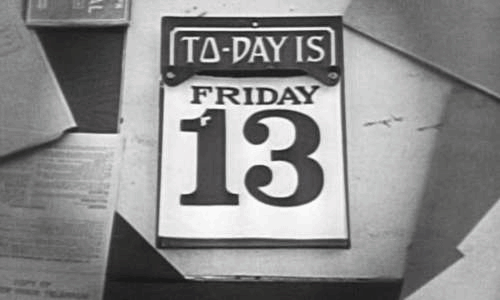The Story Behind the Superstition: Friday the 13th

October 14, 2017
Thirteen. The number often has connotation with bad luck. Fridays, ah the joy of Fridays. Many students have thanked them to be their saving grace as weeks draw to a close. Put these two things together in a mix, however, and you get something far more dreaded than just the number 13. Friday the 13th is considered by many to be the unluckiest day of the entire year. Psychologists, believe it or not, have came up with a word for how you may feel on this hapless day. Paraskavedekatriaphobia, or fear of Friday the 13th. The story behind this unlucky day goes back to the Middle Ages, with possible biblical origins and many myths and superstitions surrounding it.
According to The Telegraph, “some historians have claimed that it was the day Eve bit into the apple from the Tree Of Knowledge, causing the great flood to begin and the builders of the Tower of Babel.” The most commonly accepted origin of Friday the 13th seems to stem from the execution of Templar Grand Master Jacques de Molay, which took place on that feared day. Before dying, he cursed the Pope and the King of France, and after this many events through the ages were attributed to this curse and day.
Bad things have indeed happened on Friday the 13th, but whether they were simply coincidences or a true result of the curse placed hundreds of years ago is up to you to decide. The Telegraph also reported that “In 2010, lightning struck a 13-year-old Suffolk boy on Friday the 13th at 13:13.” That is some serious bad luck. The story also reports that “in 1976, New Yorker Daz Baxter was apparently so afraid of Friday the 13th he decided the safest place to stay was his bed. Mr Baxter was killed when the floor of his apartment block collapsed that day.”
Next time, think twice before deciding to stay at home playing sick, Tenafly students! The curse of Friday the 13th may yet come creeping up on you.
















































































































































